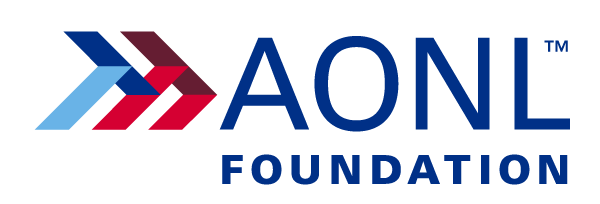On This Page:
New healthcare systems, changing policies, complex finances – the time has come to have more trained nurse executives at the helm of organizations! If you’ve already committed to the DNP, feel free to jump ahead to our program listings. But if you’d like advice on certification options, details of the DNP curriculum, examples of DNP capstone projects, and real-world tips from an NEA-BC nurse executive, read on!
Becoming a Nurse Executive
The Modern Nurse Executive
Like military generals of old, modern nurse executives have a challenging job. Every day, they juggle issues such as government policy, AI & emerging healthcare technologies, fiscal constraints, and HR debates. With a finger in almost every pie – from organizational research to quality management – they must still keep an eye on how their actions will improve a patient’s quality of care.
Fortunately, they’re well-equipped to deal with reality. Though programs like the DNP, nurse executives learn how create predictive models, implement cost-effective strategies, design sustainable healthcare policies, and put big data to work. Evidence-based practices and smart resource management serve as the foundation of their approach.
Today, these savvy leaders work as Chief Nursing Officers, VPs for Nursing & Clinical Services, Health Officers, Quality Improvement Directors, or even Commissioners of Health.
Helpful Professional Organizations
- American Association of Colleges of Nursing (AACN)
- American Association of Critical Care Nurses (AACN)
- American Organization for Nursing Leadership (AONL)
- American College of Healthcare Executives (ACHE)
- American Nurses Credentialing Center (ANCC)
Nurse Executive Certification Requirements
If you’re interested in nurse executive positions, there are 4 major certifications that you may wish to pursue. The first two – the Certified Nurse Manager and Leader (CNML) and the Certified in Executive Nursing Practice (CENP) – are offered by the American Organization for Nursing Leadership (AONL) in conjunction with the American Association of Critical Care Nurses (AACN). The second two – the Nursing Executive (NE-BC) and the Nursing Executive, Advanced (NEA-BC) – are offered by the American Nurses Credentialing Center (ANCC).
Nurse managers should consider the CNML and the NE-BC; nurse executives and those upper-level administrative positions should explore the possibilities of the CENP and the NEA-BC. If it is not already stated on the program website, ask your school if the program will prepare you for nurse executive certification exams after graduation.
CNML Requirements
- Current, active RN license
- Bachelor’s degree or higher; at least one degree must be in nursing from an accredited institution
- Has acquired at least 2,080 hours of experience in a nurse manager/primary unit leader role or at least 4,160 hours of experience in a comprehensive nursing leadership support role
NE-BC Requirements
- Accredited bachelor’s degree or higher in nursing
- Current, active RN license
- Has acquired at least 2,000 hours of experience in a leadership, management, or administrative role with a primary responsibility for the daily operations and outcomes of one (1) or more unit(s)/departments within the last 3 years
- Has completed 30 hours of continuing education in leadership, management, or administration within the last 3 years
CENP Requirements
- Current, active RN license
- Master’s level degree or higher + at least 4,160 hours of experience in an executive/senior nursing role (one of your degrees – e.g. the BSN – must be in nursing from an accredited school) or a bachelor’s degree in nursing + at least 8,320 hours in an executive/senior nursing role
NEA-BC Requirements
- Accredited master’s degree or higher in nursing or a bachelor’s degree in nursing and a master’s in a relevant field
- Current, active RN license
- Has acquired at least 2,000 hours of experience in a leadership, management, or administration position, with primary responsibility for organization-wide or system-wide operations and outcomes, that include nursing, within the last 3 years
- Has completed 30 hours of continuing education in leadership, management, or administration within the last 3 years
The Nurse Executive DNP
Typical Nurse Executive DNP Curriculum
 The American Organization for Nursing Leadership (AONL) is 100% behind the DNP. As early as 2007, they published a paper that supported the DNP as the terminal degree for practice-focused nursing, including top level nurse executive positions in healthcare systems. That means you’ll find a healthy amount of choices for both BSN-DNP and MSN-DNP Nurse Exeuctive programs.
The American Organization for Nursing Leadership (AONL) is 100% behind the DNP. As early as 2007, they published a paper that supported the DNP as the terminal degree for practice-focused nursing, including top level nurse executive positions in healthcare systems. That means you’ll find a healthy amount of choices for both BSN-DNP and MSN-DNP Nurse Exeuctive programs.
Although the curricula will obviously be different for 2-year and 4-year programs, they share common threads. Good DNPs will echo the guidelines laid down for nurse executive practice from AONL. In addition to offering strong practicums in clinical and administrative environments, they should also provide you with useful tools for your job. For instance, a solid nurse executive curriculum might include coverage of advanced diagnostic and client care skills, care of vulnerable populations, fiscal and HR management, quality assurance, and emerging technologies.
Unlike APRN DNP programs, courses for a Nurse Executive DNP tend to focus less on nursing and more on management techniques. That means you may be taking classes in areas such as statistics for healthcare administrators, health services research, healthcare finance, and leadership theory. On the same level, your practicums and DNP capstone project will not be like the clinical experiences required for the RN. Instead, they will allow you to experiment with your new knowledge in a leadership setting.
DNP Experience Requirements
Program eligibility will depend on your choice of degree (e.g. BSN-DNP vs. MSN-DNP) and school. For example, to be eligible for an MSN-DNP Nurse Executive program, you may be required to have 2 years of leadership experience within the last 5 years. BSN-DNP students seeking NE-BC certification may be required to have at least 2,000 hours of experience in a leadership, management, or administrative role. Check your program’s website for specific details. Almost every school is going to demand that you hold an active RN license.
Combined MBA/DNP Programs
Involved in the private sector or business? You may wish to consider a dual degree. A few schools have combined the DNP and MBA into one package. This will allow you to add hard-core business course credits (e.g. accounting, finance, economics) to a nursing-focused management program. Some schools will ask you to complete your first year of the DNP program before allowing you to enroll in MBA classes.
Examples of Nurse Executive DNP Capstone Projects
- The Effect of Coaching on Nurse Manager Leadership of Unit Based Performance Improvement: Exploratory Case Studies (University of Kentucky)
- Nurse Leaders and the Use of Social Media (American Sentinel University)
- Creating a Pipeline to Increase Diversity in Executive Leadership Positions (University of San Francisco)
- Nurse Leaders’ Psychological Safety Education and Culture of Safety in Medical Surgical Units (University of Pennsylvania)
- Comprehensive Peer Review: Exploring the Impact on Nurse Engagement (Wake Forest School of Medicine)
Real-World DNP Advice
Dr. Rachel Behrendt, DNP, RN, NEA-BC
 Dr. Rachel Behrendt is COO/Senior Vice President at Hospice of the Valley. She has more than 30 years of clinical and administrative experience in academic health care settings, including work as the Chief Nursing Officer at Banner-University Medical Center Phoenix, VP of the Nursing Professional Development and Magnet Recognition Program at Thomas Jefferson University Hospitals, and an Oncology Clinical Nurse Specialist & Nurse Educator at Robert Wood Johnson University Hospital. She holds advanced certification in nursing administration (NEA-BC) and oncology (AOCNS). Dr. Behrendt graduated with a DNP from the University of Medicine and Dentistry of New Jersey (UMDNJ) in 2009 and received the “Excellence in Cancer Nursing Education” award from the national Oncology Nursing Society in 2010.
Dr. Rachel Behrendt is COO/Senior Vice President at Hospice of the Valley. She has more than 30 years of clinical and administrative experience in academic health care settings, including work as the Chief Nursing Officer at Banner-University Medical Center Phoenix, VP of the Nursing Professional Development and Magnet Recognition Program at Thomas Jefferson University Hospitals, and an Oncology Clinical Nurse Specialist & Nurse Educator at Robert Wood Johnson University Hospital. She holds advanced certification in nursing administration (NEA-BC) and oncology (AOCNS). Dr. Behrendt graduated with a DNP from the University of Medicine and Dentistry of New Jersey (UMDNJ) in 2009 and received the “Excellence in Cancer Nursing Education” award from the national Oncology Nursing Society in 2010.
Q&A with Dr. Behrendt
Q. Why did you choose the DNP? Were you considering any other kinds of degrees?
A. To me, the DNP offered the best of both worlds. I gained advanced knowledge of topics from a leadership perspective – health policy, epidemiology, finance, and business – as well as higher level research knowledge – statistics, research methods, and theory development. I had always wanted an advanced nursing degree, but a PhD didn’t align with my ultimate goals for the kinds of knowledge I would gain and apply.
Q. How did you decide which school to go to?
A. I chose the University of Medicine and Dentistry of New Jersey (UMDNJ) based on their curriculum, faculty reputation, and geography. When I first started the DNP program, it was in its very early stages and the curricula varied widely. I remain very pleased with my choice. Dr. Sue Salmond, the UMDNJ Nursing Dean, is an innovator and set very high standards for the DNP program, faculty, and students. I definitely got my money’s worth!
Q. Did you have any worries going into the program?
A. Handling full-time work with full-time school was a big concern. I will never forget my first paper in the DNP program; it was my health policy class with Dr. Tony Forrester. The assignment was a 45-page paper and we only had 3 weeks to complete it. After that, I scaled back on other outside interests and it was school and work for the next 3 years!
Q. How did you finance it?
A. I was fortunate to be able to take advantage of RWJUH’s tuition reimbursement policy and paid for the balance out of my savings.
Q. Was it an online/hybrid DNP or a traditional one? Would you recommend that format?
A. I completed an executive model where we had classes every other month. During the first and fourth week of that month, we would meet Friday, Saturday, and Sunday, and online in-between. Assignments were due each week and a large assignment was due at the end. I loved this model. Students were able to bond and form lasting relationships, have face-to-face dialogue, and still have the flexibility of working online for half of the class. The “month on, month off” schedule was fantastic; it really allowed you to catch your breath. It felt like true knowledge acquisition, not just a paper chase for a degree.
Q. What were your favorite courses or experiences?
A. My favorites by far were theory development and health policy. I really had my horizons broadened by my classmates’ work and experiences. Florence Dowrie set up a program to help midwives in Sierra Leone have access to evidence-based practice in order to improve maternal mortality rates. Cassie Groll’s project was turned into a book that is available on Amazon and provides a resource for novice L+D nurses. I loved seeing the diverse interests of my classmates come to life!
Q. What did your DNP capstone project focus on?
A. I did a qualitative research project that evaluated the benefits of certification to certified nurses. I have always believed in the value of certification but – up to that point – no one had studied it from a certified nurse’s perspective. My research validated my own feelings about why certification matters.
Q. Has the DNP had any effect on your job? How?
A. I believe that the DNP helped me realize that I needed to spread my wings a bit. A mentor, Regina Cunningham, once said if you stay in a place longer than 20 years, you will likely retire from there. When I got my doctorate, I started looking for how I could better use that knowledge. Hard as it was to leave my nursing “home,” I had an opportunity to leave RWJ and go to Thomas Jefferson University Hospitals. Thanks to my experience at TJUH, I was able to stretch again and take a CNO position at one of the largest health systems in the country. I don’t believe either of these would have been possible without the knowledge and the confidence in my abilities that the DNP program gave me.
Q. Did you earn a DNP in order to qualify for certification?
A. No. But, I did get my NEA as a way of demonstrating the knowledge I gained through DNP and the leadership expertise I had amassed through the years of my career.
Q. Any other advice or tips you have for future DNP students?
A. Plan for your DNP. Don’t let it be a race for a title or degree. Spend time learning and enjoy the ride! Lastly, make sure people know that you have earned this degree – many think this is an “easy way” to get a doctorate. Coursework is rigorous, capstones are expanding nursing knowledge, and the time commitment is considerable. There is nothing easy about doctoral-level coursework!

